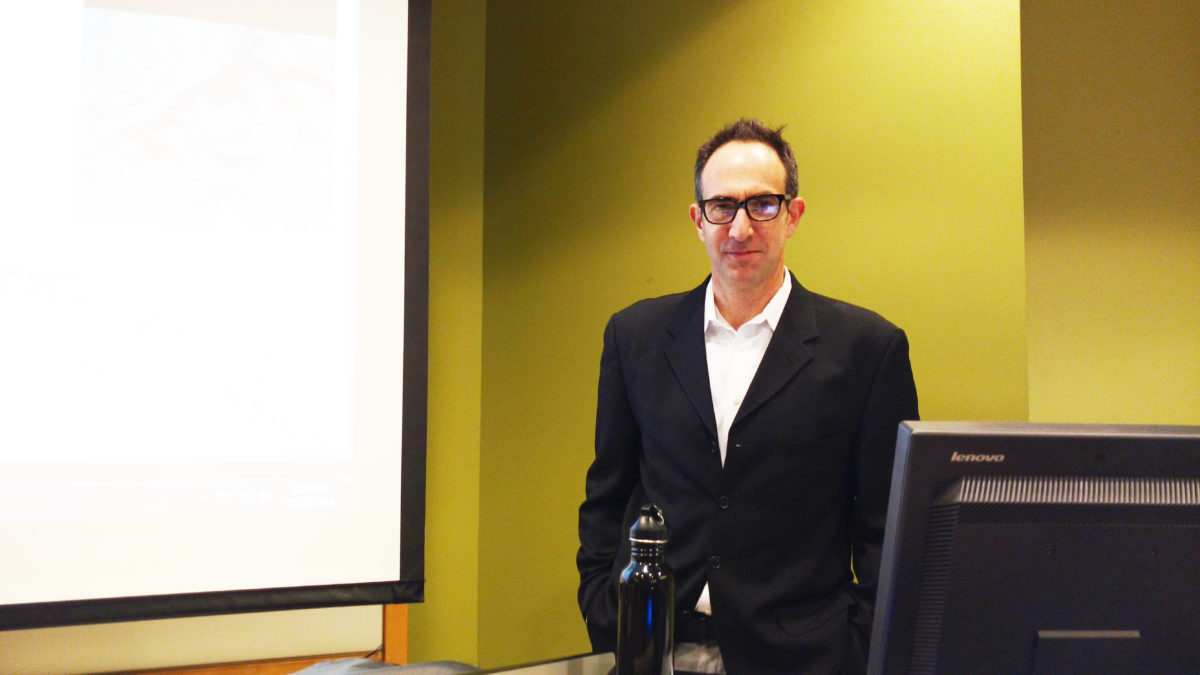Joshua Price went through slide after slide showing some of the last pieces of correspondence Salladin Barton, a 35-year-old inmate who was developmentally disabled and suffered from schizophrenia, wrote before his death in January 2015.
Barton’s last letter was one pleading for medical treatment. He repeatedly promised to “tell the truth,” if he could only see a doctor. He ended the letter stating “The truth sets you free.”
During his lecture at STU last week, Price, St. Thomas University’s endowed chair in criminology and criminal justice, said he became actively involved in Barton’s case after Barton’s death.
Barton died in a country prison in New York state. He’d been unable to make make bail and had been awaiting a trial for 19 months. His family had no idea what had happened to him.
The National Association for the Advancement of Colored People had contacted Price after Barton’s death. Price had previously been involved in studies regarding health care in prisons. His research demonstrated there were poor health care amenities. The entire institution had systemic problems including poor hygiene, water, heating and staffing.
“When it came to incarcerating the mentally ill, the problem was much larger in scope, due to a failing mental health apparatus as well as prosecutors, police and judges unwilling to divert people elsewhere,” said Price.
The investigation revealed Barton suffered from seizures during his time in prison. They were believed to have been brought on by the brutal beatings, including punching and kicking, he received from correctional officers.
At the request of Barton’s lawyer, half-a-dozen inmates wrote letters stating they were witnesses to the abuse he suffered. They provided detailed statements about the poor conditions of the prison but also his mistreatment at the hands of correctional officers.
“‘I’ve witnessed COs drag him out of his cell and into the medical unit by his shackles,’” said Price, reading part of an inmate’s letter regarding Barton’s treatment in jail.
“‘Please,’ another [letter] reads, ‘don’t turn a blind eye to the injustice that goes on in this country jail. These guys are very wicked and evil.’”
The letters, Price said, demonstrated the behaviours of guards went beyond cruelty. There was a kind of of pleasure that was taken from the suffering of not just Barton, but of all the prisoners in solitary confinement.
While Price’s research was conducted in the United States, he said there are parallels that can be drawn into our Canadian systems. Adam Capay, an 19-year-old indignenous man spent four years in solitary confinement in Thunder Bay. In Canada, however, the term administrative segregation is used instead of solitary confinement.
Within New Brunswick alone, there have been 919 documented suicide or self-harm attempts in the last 14 years. Not to mention, the case of 33-year-old Matthew Hines, who died in a prison outside of Moncton in May 2015. Hines’ case is eerily similar to that of Barton.
Investigations by the CBC uncovered Hines’ death was most likely caused by lack of oxygen after being pepper sprayed five times. He was brought to a shower for decontamination, where his shirt was pulled over his face and he slipped and struck his head.
Though undiagnosed, his sisters believe Hines, like Barton, suffered from a form of mental illness.
Instead of answering questions at the end of his presentation, Price turned his own questions to the audience. He urged the audience to reflect on the treatment of the mentally ill and minority populations, particularly Indigenous peoples, in Canadian prison systems.
“This is where it becomes a conversation … is this part of the secret consitution of Canada? … is this an anomaly? … Or you could think this is what keeps us safe, if we didn’t have people incarcerated we would be unsafe. Or maybe, you could think, we just didn’t know this was happening, this is shocking … that’s the kind of thought I want to leave you with.”
-With files from the CBC

